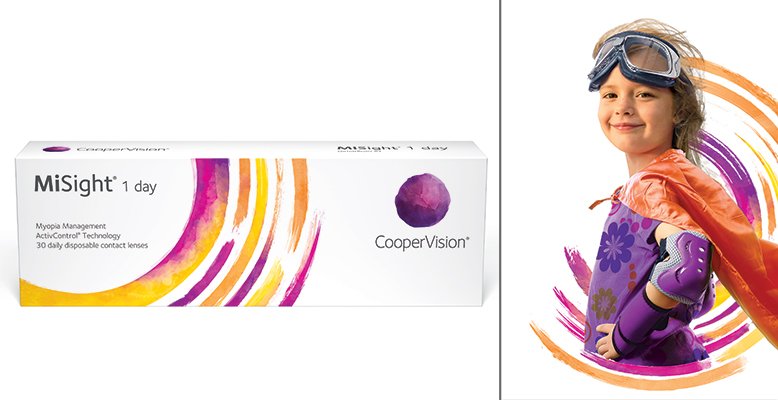Omega-6s are another group of essential fatty acids which we get through eating beef dairy, vegetable cooking oils, and vegetable shortenings (i.e. biscuits, potato chips etc). The ideal ratio of omega-3s to omega-6s is 1:2. For kiwis that ratio has been estimated to be as low as 1:10.
Omega-3s are helpful for dry eye in these four ways:
Decrease inflammations (signs of inflamation are redness, irritation, scratchy eyes)
- Decrease cell death (called apoptosis)
- Stimulate tear secretion
- Improve meibomian gland oil secretion (these are the vital oils which create better tear film)
The take home is omega-3s are very beneficial in dry eye treatment. Try them and see. We have two omega-3 supplements; Thera Tears, and Lacritec. Both are designed specifically for dry eyes. Anecdotally we find people taking these omega-3s notice a difference within 3-4 weeks of using these supplements.
There is a lot of cool science driving these benefits, if you are interested in more details please read on!
Omega-3s decrease inflammation. Once eaten, omega-3s are elongated by enzymes to produce anti-inflammatory compounds: prostaglandin E3 (PGE3) and anti-inflammatory leukotriene B5 (LTB5).
There is an abundance of clinical evidence that taking omega-3s decreases inflammation seen in joints in rheumatoid arthritis and in dermatitis. These anti-inflammatory effects help explain why omega-3s have been helpful for people symptoms of meibomian gland dysfunction and blepharitis.
Omega-3s decrease apoptosis (programmed cell death) through suppressing TNF-a. TNF-a increases programmed cell death in the lacrimal gland, where aqueous tears are produced. This contributes to the decrease in tear production, and increase in tear film osmolarity that drives dry-eye ocular surface disease.
Restasis® (not yet available in NZ), is a drug administered as an eye drop (it is toxic systemically) also inhibits TNF-a production. Applied as a drop, it achieves good concentrations on the eye surface but is not thought to reach the orbital lacrimal gland in humans. Omega-3s, taken by mouth, reach the lacrimal gland by the blood supply and the ocular surface via meibomian gland secretions.
Omega-3's stimulate tear secretion. There are more positive effects of suppressing pro-inflammatory cytokines. We now know the pro-inflammatory cytokines TNF-a , IL-1a , and IL-1b, impair tear secretion in lacrimal gland disease-based dry eye by inhibiting the release of neurotransmitters from neural synapses, and interfering with the secretory response of lacrimal gland acinar cells to stimulation. This is probably the main mechanism by which tear secretion decreases in dry eye.
The importance of this was illustrated in work showing when TNF-a gene expression is blocked by gene therapy in an animal model, autoimmune lacrimal gland disease can be reversed, and tear secretion restored. The relevance of this animal model is supported by epidemiological data that indicates that the risk for dry eye decreases with increased dietary intake of omega-3s, as well as an additional study that finds that Sjögren's patients have a lower dietary intake of omega-3s, including EPA and DHA, than age-matched controls.
While EPA is central in blocking the gene expression of pro-inflammatory cytokines, DHA may help in a complementary way. Neural synapses contain among the highest concentration of DHA in the body and research has shown that dietary supplementation with DHA restores neural DHA levels and improves age-related declines in synapse function. DHA may reduce the ability of pro-inflammatory cytokines in the lacrimal gland to inhibit signal transduction at the synapse. Lending credence to this hypothesis is the finding that severity of dry eye in Sjögren's patients has been found to be inversely proportional to membrane and serum levels of DHA.
Omega-3s affect the lacrimal gland in another way. EPA and DHA and alpha-linolenic acid (ALA) from flaxseed oil competitively inhibit conversion of omega-6s to arachidonic acid (AA), promoting the conversion of DGLA to prostaglandin E1 (PGE1). PGE1 also has anti-inflammatory properties and, in addition, acts on the receptors, increasing cyclic AMP (cAMP). PGE1 and cAMP have been shown to stimulate aqueous tear secretion.
Omega 3's, and the meibomian gland oils. Meibomian glands use essential fatty acids to synthesise oil (meibomian gland secretions). Dietary intake of omega-3s in general, and EPA and DHA in particular, have been shown to affect the polar lipid profiles of meibum as observed by HPLC. THinning and clearing of meibomian gland secretions has been observed with omega-3 supplementation.
There have been some attempts to treat dry eye with the omega-6 essential fatty acid gamma linolenic acid (GLA) found in black currant seed oil, evening primrose oil and borage oil. There are two published studies that concluded GLA was not effective for dry eye.
Omega-3 supplements provide a foundation for a broad spectrum of dry eye treatment regimens by decreasing inflammation, and improving the oil and water layers of the tear film. We have two supplements available; Lacritec and Thera Tears. Ask us if these could help you.








